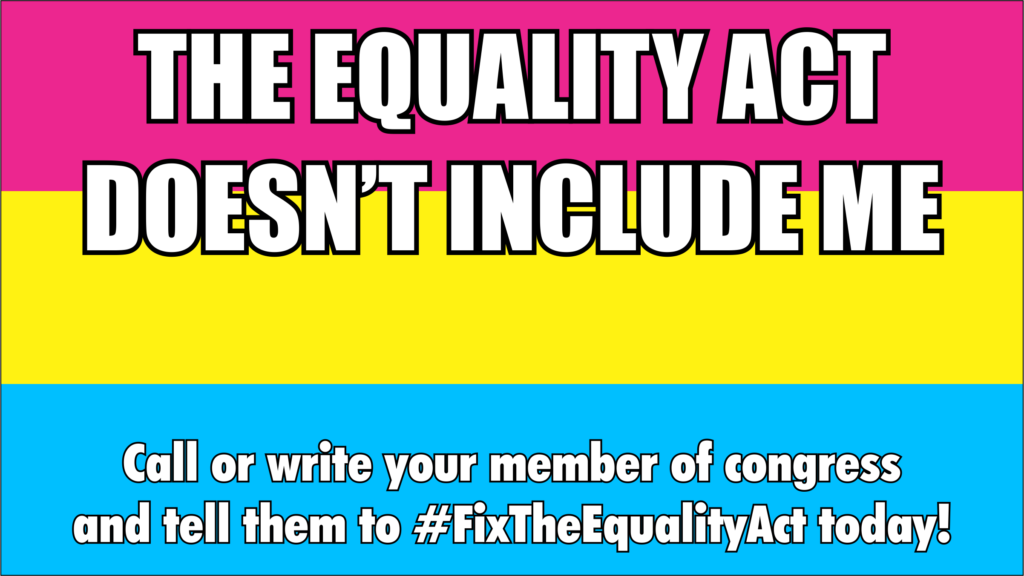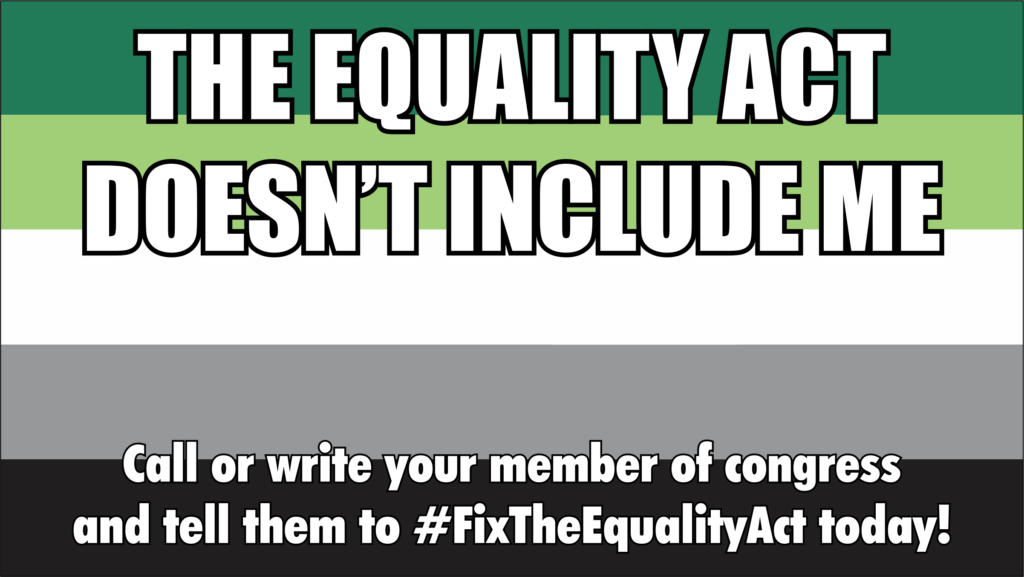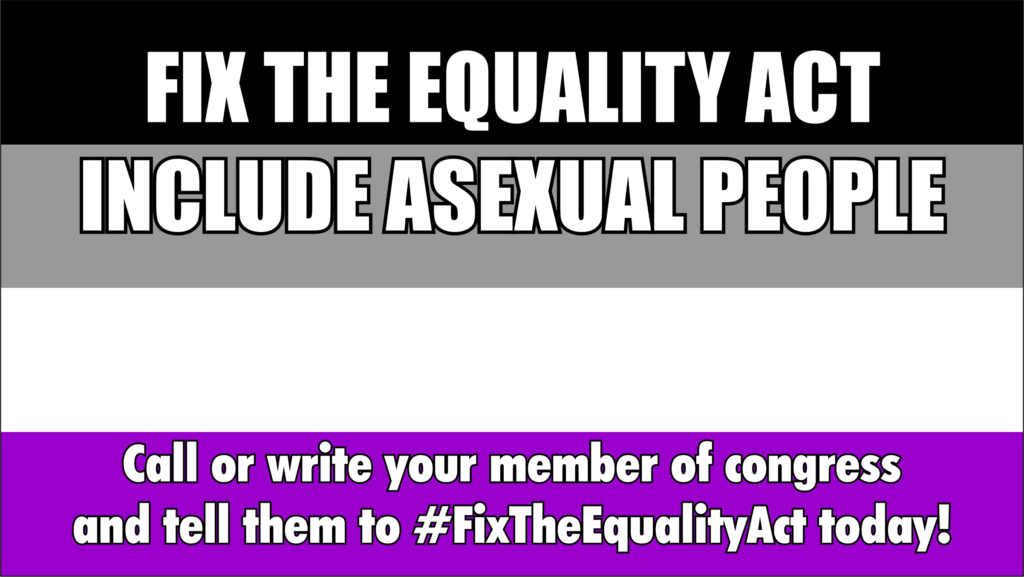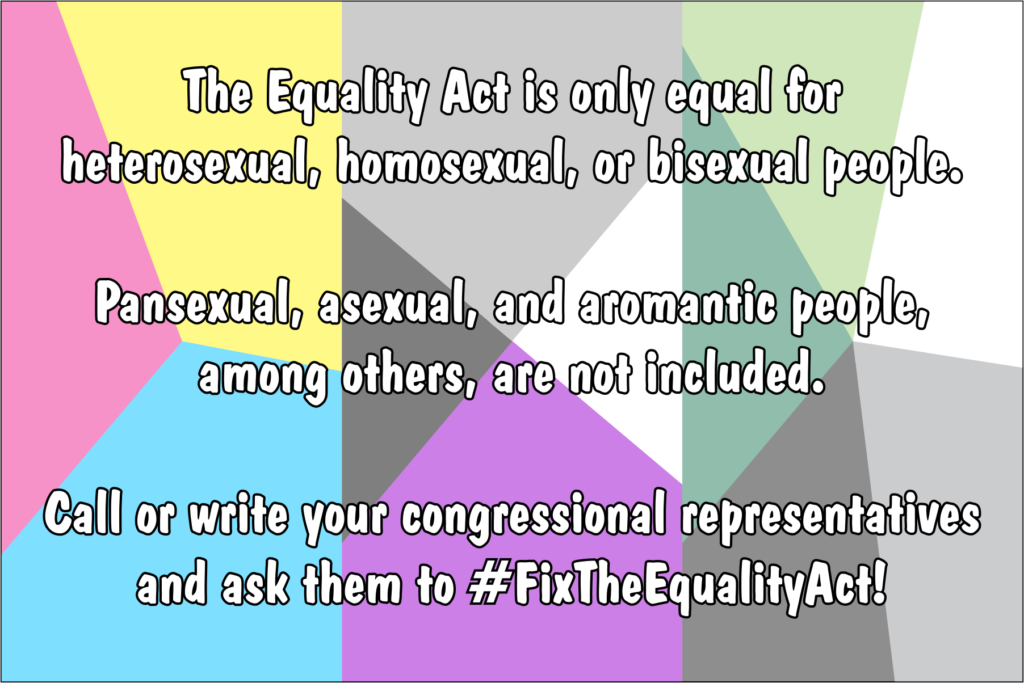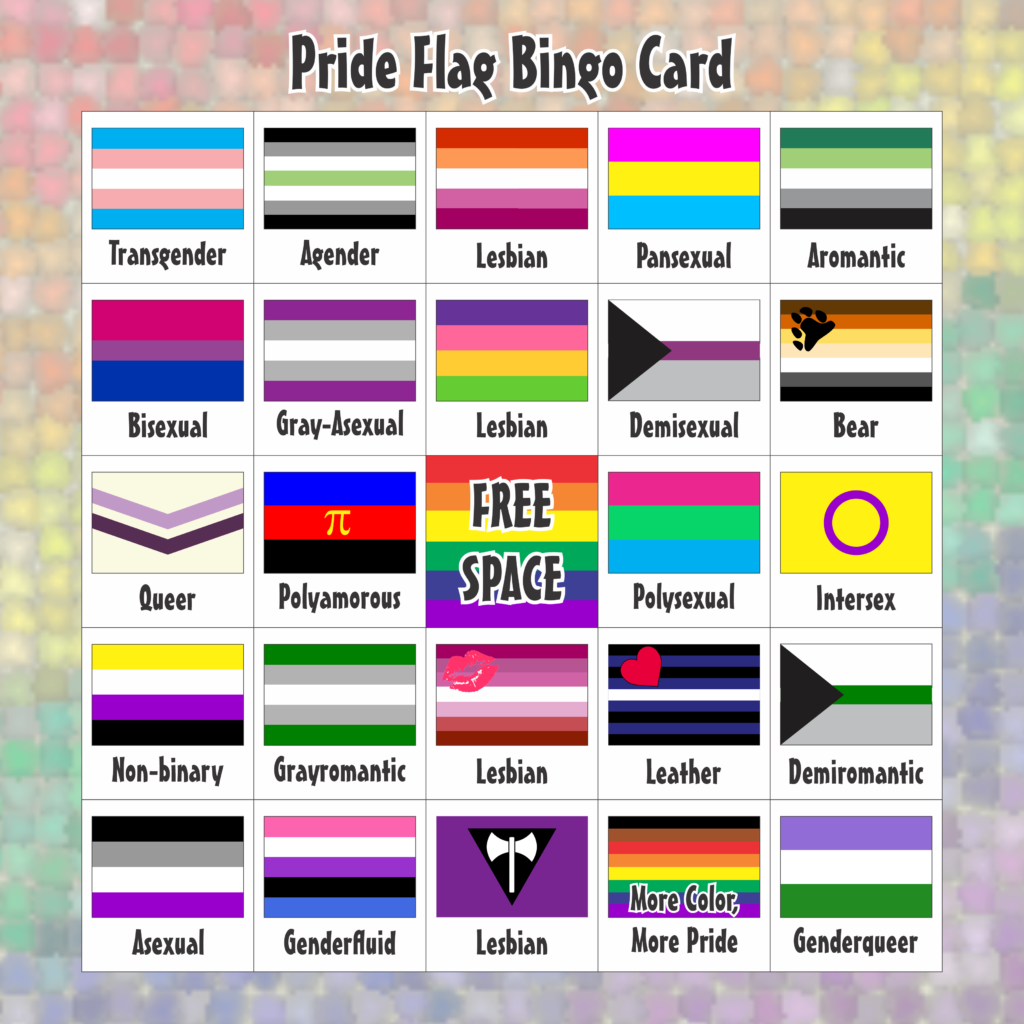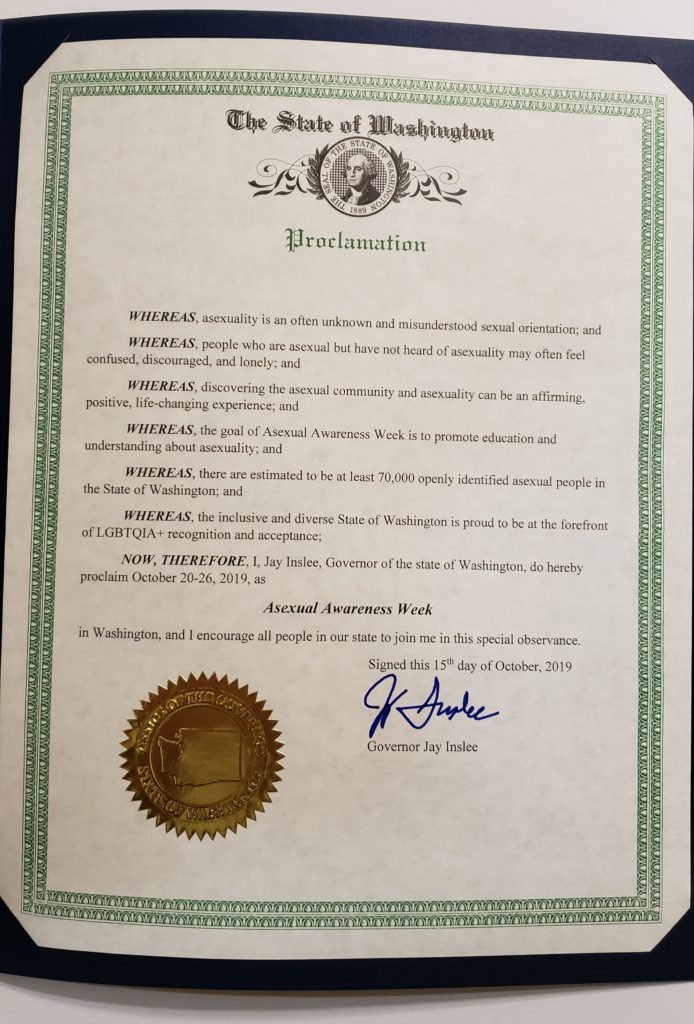[This post is a submission for the October Carnival of Aces, hosted by @asexualawarenessweek, on the theme “Reaching In, Reaching Out”, and as been crossposted here from its original location.]
Every
year around Ace Week, I tend to give encouragement and suggestions about the
type of outreach or activism we can do. This year, I’m going to do things
a little different and instead give a report card on where I think we are in
terms of various kinds of activism/outreach/visibility.
These are solely my opinions and my categories and are based on my experiences and not any kind of exhaustive research or survey. Please feel free to provide your own grades and suggest other areas I might have missed. I also want to note that these grades are not an indictment or attack on any particular group, person, or project. If you’re working on any of these things, you’re part of the solution and your work will make these grades improve over time, so keep at it!
And if
you’re doing any of these things, please plug your projects, so people will
know about them!
Intra Community – A
We
focus an awful lot of energy inward, and that’s a good thing. Extending a
helping hand, providing resources, hosting chatrooms, making podcasts,
organizing meetup groups, writing lengthy blog posts, hosting conferences and unconferences, selling t-shirts…
We’re doing a pretty good job supporting each other from the inside.
Queer Community – B
There are quite a few mainstream LGBTQ groups who openly
support us. We often hold our meetups at the queer community center in
town. Many aces are involved with LGBTQ organizations. There’s an
ace group who goes to Creating Change every year. We’re an obligatory
part of many organizations’ Pride messaging. Lots of groups now
deliberately use the “LGBTQIA” variant of The Acronym, and make it clear that
“A” isn’t for “Allies”. The ace group in the NYC Pride Parade this year
(likely the biggest pride parade ever) was
deliberately selected to be the 10th contingent, which is a huge deal because the parade was literally 12 hours
long.
There
are obviously challenges. The uninformed who don’t understand why we’re
at the table. The deliberate trolls who relentlessly hound us
online. But those people will become irrelevant over time.
Unfortunately,
this year marked the first time where I saw Rainbow Capitalism set its sights
on us. (With a big name ace group complicit in the exploitation…)
So that’s not good.
Everyone Else – D
We are
not doing well in this area. There are a few people out there who have
heard of asexuality, but not many. Most people use the word wrong or as
the insulting punchline to a joke. There isn’t a single household name
who has come out as asexual and put themselves out there as an advocate.
It’s better than it was 8 years ago, but we’re still mostly invisible.
I don’t
really have any suggestions here (except that if you’re famous and asexual,
COME OUT), because most of the suggestions I’d have are covered in the other
areas.
Direct Outreach – F
By “Direct
Outreach”, I’m referring to deliberately trying to find people who are asexual
but who are unfamiliar with the term or that do not recognize that they’re
asexual for whatever reason. It’s sort of a subset of a lot of these
other groups. (And it could probably use a better name…)
I’m calling this out explicitly, because I think this
can have the most impact, if we can figure out effective ways of doing it, and
I don’t think anyone’s really doing this. (I sort of tried, but it didn’t
really work out…) Basically, it would be able getting information about
asexuality in front of the people who need it. Taking over the search
results for “Why don’t I want sex?”.
Writing articles about how some guys just don’t care about that sort of thing
for a men’s magazine. Maybe even a direct person to person conversation
with that friend who never seems to date. I don’t know, exactly. If
I knew, I’d be doing it. But I think it needs to be done.
Fiction Media – C+
There
are books with ace characters now! Pretty much entirely YA, though.
And either a love story focused on the asexual character being asexual, or
where asexuality is a tangential inclusion token with no real value.
There are TV shows with positive ace characters
now! Huge step forward from lows of Better Half!
Three shows, in fact!. Two of which have been canceled, and the third of
which is about to have its final season. And none of which are anywhere
close to the popularity of House. And none of which are anywhere close to
the popularity of another show which completely erased a main character’s canon asexuality.
There
are movies with ace char- Oh no, no there aren’t. Never mind.
Same with video games.
While some strides have been made, and having productions actively consulting with groups like Ace LA is a huge step forward, we’re still largely living an area of headcanons and unverified conjecture and Word Of God retcons. There’s so much more than can be done.
Most importantly, we shouldn’t fawn over and praise any little scrap of hope. Demand better.
If
you’re in a position to make things, make them. If you’re in a position
to influence things to be made, influence them. If you’re in a position
to boost content that is made, boost it.
Non-Fiction Media – C-
There are starting to be articles about asexuality that
go beyond the typical sensational “There are some people who claim to be
asexual, can you believe that, isn’t that SO STRANGE” or the blandly
informational 101 interview featuring a picture of sad grey people in
bed. Not many, but they’re there. But, at the same time, there are
blazingly dismissive assholes hiding behind Ph.Ds, writing things like “’demisexual,’ an unnecessary new substitute for the word ‘human’ ”
in articles that are published in 20-fucking-19.
There
are a number of podcasts and YouTube videos talking about asexuality, but I
don’t know how much reach they have outside of the ace community.
There’s
one documentary that hasn’t aged well and I think has been removed from most
streaming services, and another that hasn’t been released yet and is phenomenal
and you should all see it. So that… Two documentaries.
Taking
a quick look on Amazon, there are about seven books of substance on
asexuality. Three are academic queer theory textbooks with a very
specific audience. Two are self-published. One is a weird
collection of essays, half of which have little to do with asexuality at all,
written by someone who isn’t ace and who didn’t seem to bother even talking to
aces for much of the book. That leaves one book about asexuality for a
general audience written by an asexual that had a real publishing run.
Just one.
So,
y’know, Cs get Degrees or whatever, but we can do soooo much better in this
area. Someone go write a book about asexual dating. Someone go
write a book about asexual history. Go. Do. Now.
Education/Schools – D
Well,
it seems like it’s getting at least mentioned occasionally, and groups like
Asexual Outreach have put some work towards this. But we’re still left
out of sex ed in most places, and when we are included, the information can be
confused, inaccurate, or even ridiculed by the instructor. Tackling this
area will, over time, help out every other area on this list, because the next
generations will all know and understand what asexuality is, and we won’t have
to start from zero in order to get anything done.
Political/Legal – F
Earlier
this year, I did a cursory review of anti-discrimination laws as they pertain
to asexuality. Where asexuality was protected, it was often by
accident. Only one state explicitly mentioned asexual people. Many
states which did have strong LGBT anti-discrimination protections have
defined “sexual orientation” in such a way to exclude asexuality.
Even the “Equality Act” that the Democrats have made a lot of noise about
this year has that narrow definition.
We need to start making connections with politicians and political groups, and we need to start leveraging our connections with queer organizations to get them to push for better language in these laws. (Many of the non-discrimination laws were deficient or bizarre in multiple ways, so we’d all be better off with improvements.)
The Seattle group did manage to get a Ceremonial Proclamation from the Governor of Washington in recognition of Ace Week this year! But, uh, those things have zero political or legal weight to them, so it doesn’t change the grade. (I’m going to write another post about how ceremonial proclamations are pointless and why you should get one anyway…)
And I should note that it’s an F— as far as protections for aromantics…
Health Care – D+
Well,
we managed to get parts of the DSM-V rewritten. But even those parts are
less than ideal. There are some therapists and doctors who are well
versed in asexuality, and others who, as I mentioned above, hide behind their
Ph.Ds writing horrible things and going unchecked. There’s a raft of sex
pills with marketing that explicitly targets people who are probably asexual
but don’t know it yet, trying to sell them worthless junk that will make them
suddenly black out randomly or permanently change the color of their
skin. We’re still not an option on the clipboard the doctor hands you to
fill out. We’re still forced to take unnecessary and invasive tests for
no practical reason.
I think we need to be showing up at health care conferences. We need to be reaching out to local providers. We need to be telling people how they should be treating us, instead of letting them fumble around and hopefully get it right on their own.
Overall GPA: 1.59
A 1.59 out of 4.
Now, like I said at the beginning, that doesn’t mean people who are working on these things are doing a bad job, or that we’re failing as a whole. It means we have work to do. And all of the activists out there know we have work to do, and that’s why they’re out there doing it! The point of this report card is to inspire people to get involved, to stand up and say, “I think I can help make this better”. That’s all activism is.
We have a lot of work to do. Time to get busy.

